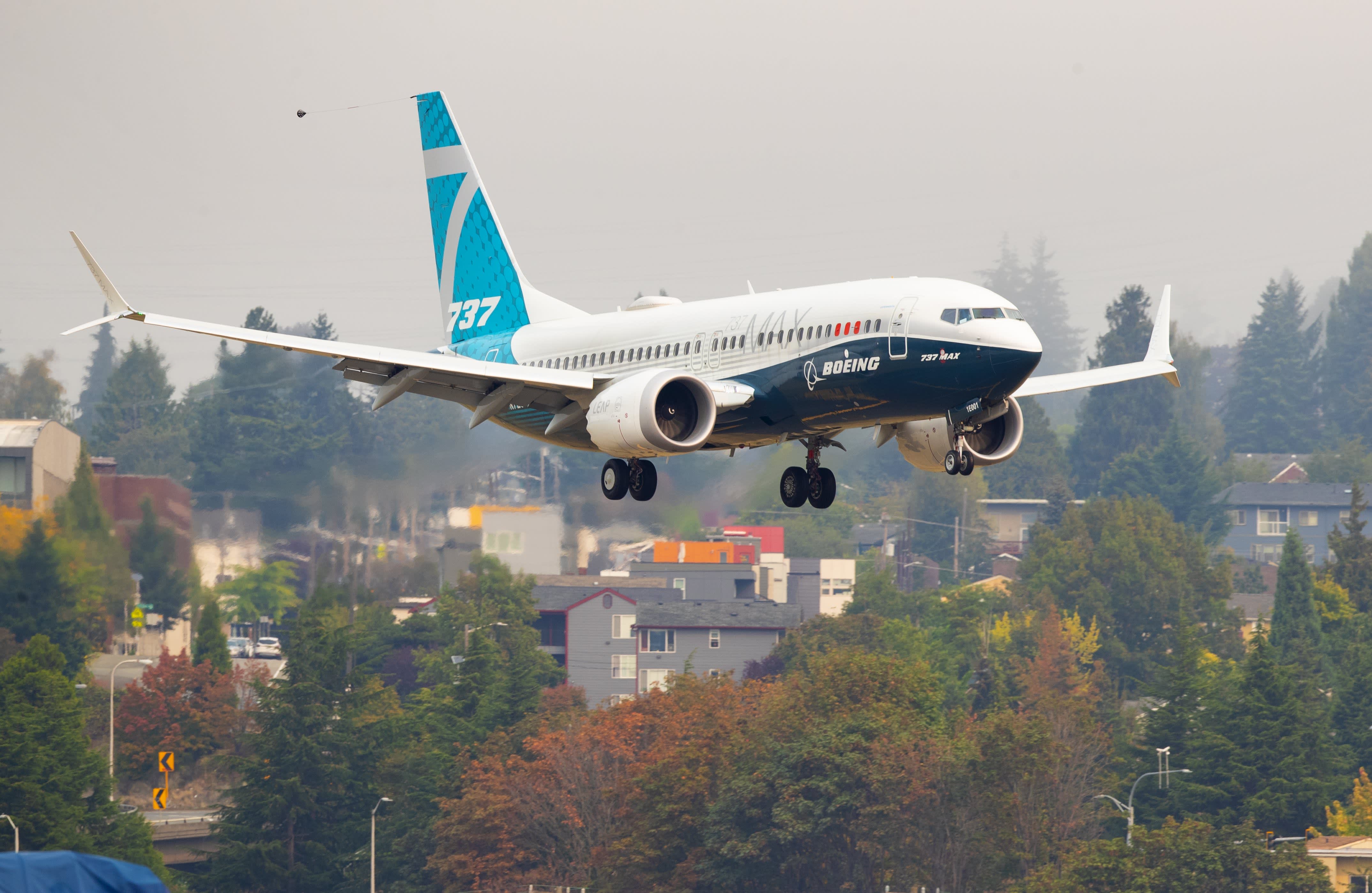The Boeing 737 Max airplane prepares to land after a test flight in Seattle, Washington, Sept. 30, 2020.
Mike Siegel | The Seattle Times | Bloomberg via Getty Images
Boeing reported fourth-quarter and 2020 results before the opening bell Wednesday, as it details the damage of the extended grounding of its 737 Max and the Covid-19 pandemic.
Here are the numbers:
- EPS: A loss of $15.25 a share, it is immediately unclear if that is comparable to a loss of $1.80 share that is Refinitiv’s consensus estimates.
- Revenue: $15.30 billion, vs. $15.07 billion expected by Refinitiv estimates
The company will outline its prospects for a recovery in what’s shaping up to be another challenging year for aviation as new travel restrictions and coronavirus infections curb already depressed demand for flights.
Wall Street analysts expect an adjusted loss per share of $1.80 on revenue of $15.07 billion for the last three months of the year, according to Refinitiv consensus estimates. Full-year 2020 sales are expected to have dropped 24% to $57.94 billion.
Boeing’s aircraft deliveries plunged to the lowest in decades and cancellations hit records last year as the extended grounding of its 737 Max after two fatal crashes and a collapse in travel demand from the pandemic. Analysts expect Boeing to show a record net loss topping $4.1 billion for the year.
Boeing executives will discuss their results on a 10:30 a.m. ET call with analysts.
The Chicago-based aircraft manufacturer is seeking to turn a page from two crashes of its 737 Max that killed all 346 on board. U.S. aviation regulators in November cleared the best-selling planes to fly again, allowing Boeing to start delivering roughly 400 new jets it’s produced at its Seattle-area facility but wasn’t able to hand over to customers. customers. American Airlines, United Airlines, Alaska Airlines, Aeromexico and Brazil’s Gol are among the airlines that have received Max jets so far.
Deliveries are key for Boeing because it’s when airlines pay the bulk of the plane’s price.
Investors also want to know Boeing’s outlook for widebody airplanes. It has already cut production of its 787 Dreamliner planes, jets that are used for long-haul international planes, the type of travel that has been most impacted by the pandemic.
Boeing’s CEO Dave Calhoun in April forecast that travel demand won’t return to 2019 levels for two to three years.
This story is developing. Please check back for updates.
